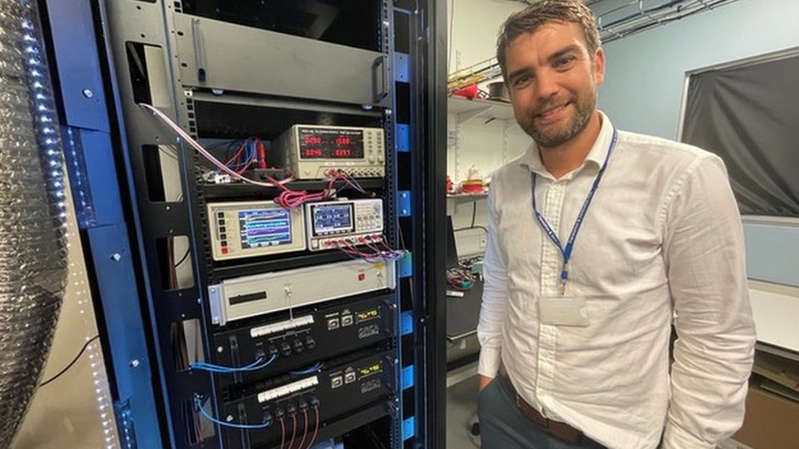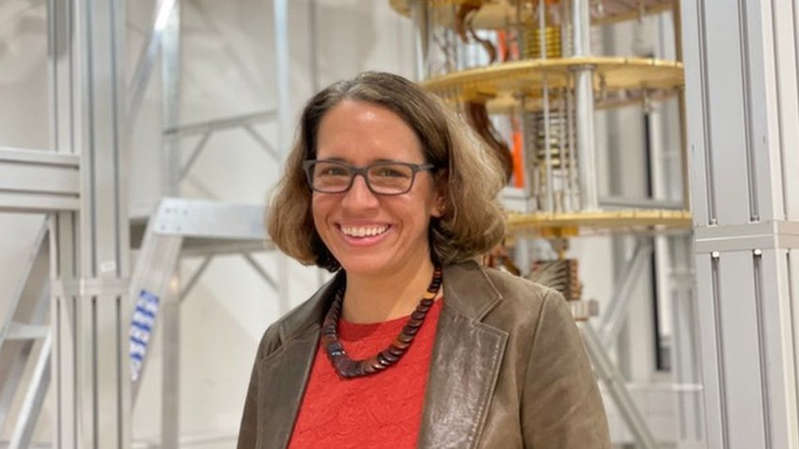
“We are completely redefining the quantum computer,” says Richard Murray, CEO of Orca Computing.
British company Orca Computing announced the creation of one of the world's smallest quantum computers. But it's not just size that's important, new technology is important.
Launched in 2019 by a group of scientists at Oxford University led by Professor Ian Walmsley, Orca Computing said the use of no-cooling technology will make quantum computers commercially attractive for the first time.
But their competitors have a different opinion and go their own way.
Photons don't need cooling
Quantum computers, still in the development stage, use the phenomena of quantum mechanics (quantum superposition and quantum entanglement), which dramatically increases the ability to process and transmit data. They operate not with bits that can take the value either 0 or 1, but with qubits (quantum bits) that have values of both 0 and 1 at the same time.
Major players in the field of creating quantum computers, including Google and IBM, use cooling of the elements that make up a device to near absolute zero. Their models are large in size, require complex associated equipment and are very expensive.
Orca Computing was the first to use quanta of light – photons – in its device. Professor Walmsley is the author of a number of works devoted to these smallest units of light, at the same time elementary particles and electromagnetic waves.
We are in the small Orca Computing office in the West London technology park. CEO Richard Murray opens the door to the holy of holies. It looks like an ordinary server room. Nothing futuristic.
“We are completely changing the way we think about a quantum computer,” he says.
“The good thing about single photons is that they don't interact with the environment,” Murray stresses.
Commercial attractiveness
In the future, quantum computers will be able to process data arrays that are inaccessible to ordinary computers. Potential applications include predicting climate change, accelerating artificial intelligence, and developing new drugs.
For practical use, quantum computers are needed, operating with hundreds, and in the future with millions of qubits. The Orca computer has only four of them. This is significantly less than that of competitors.
But the main thing is that the principle works, and increasing the capacity is a matter of technology. According to company representatives, this will take another couple of years.
Professor Walmsley says that the use of technology that does not require cooling will make quantum computers commercially attractive for the first time.
- It'll be like new electricity. “Google CEO – on quantum computers, childhood, and monopoly
- What is a temporal crystal and how it turns our understanding of the laws of physics
Richard Murray said the new computer will be unveiled to the public at a trade show later this year.
Professor John Morton of the University College London, one of the leading British experts on quantum computers, believes that the use of photons is a promising method.
According to him, other, larger companies are already interested in the idea.
“Photonics will definitely not be a peripheral direction,” the expert says.
The first Orca product is roughly the same as the Apple Watch in terms of power and is significantly inferior to the experimental models from Google, Rigetti and IBM. And Professor Morton is not sure that the task of increasing productivity will be that easy to handle.

Rigetti's device is nothing like a regular computer (pictured – Rigetti manager Mandy Burch)
Competition in the quantum field
Orca receives funding from the government, which has declared its goal of making Britain the world leader in the creation of quantum computers.
The American company Rigetti decided to build its quantum computer in the United Kingdom, at the production site of the University of Oxford near the city of Abingdon.
Rigetti manager Mandy Burch demonstrates a model created by the company. Unlike the Orca computer, it looks like a huge golden chandelier, from which wires run in all directions.
“What you see in front of you are the control lines, cooling plant and other infrastructure to power the first working quantum computer in Britain,” she says.
The 32 qubit elements brought from the United States are still stored in sealed containers filled with liquid oxygen.
The next step is to put them together, turn on the cooling unit and start testing.
By saying “the first working computer”, Rigetti means that at the beginning of 2022, private clients will have access to it for solving practical problems.
The first customers are Standard Chartered Bank and Phasecraft, which are going to use it, respectively, to predict financial market volatility and develop better battery chargers.
This is just the beginning, says Mandy Burch.
“Quantum computers are not yet more efficient, faster or cheaper than classical computers. But what we are doing here is progress towards solving problems that ordinary computers cannot.”
When asked about her attitude to the developments of Orca, Mandy Birch answers diplomatically.
“We are witnessing the emergence of a new branch of the economy. It is interesting to observe the development of different technologies. We have focused on semiconductor qubits and consider this approach to be the most flexible and practical.”
Orca also entered into its first commercial deals, with telecommunications company BT Group and oil and gas giant BP.
Richard Murray admits that it is not easy to compete with American companies with far greater financial strength. But Britain can lift the glove, he is sure.
“Why did we lose faith in ourselves? We have first-class technology and all the prerequisites to compete successfully, especially with government support. The main thing is to remain optimistic.”

